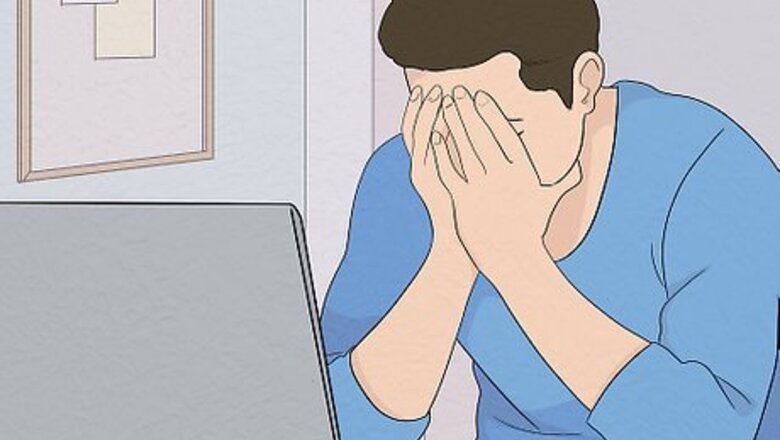
views
X
Research source
Intense work dissatisfaction can lead to psychological problems like chronic stress, anxiety, depression, insomnia, substance abuse, and more. In this article, we’ll dive into the studied mental and physical impacts of hating your job. Plus, we’ve interviewed certified career coach Meredith Walters, MBA to show you how to improve your work circumstances and find a meaningful, fulfilling career.
- Hating your job can lead to chronic stress and other mental health issues like anxiety or depression. Insomnia, irritability, and burnout can also occur.
- Long-term stress can also lead to physical symptoms like headaches, muscle tension, gastrointestinal issues, or elevated blood pressure.
- Identify your specific work-related stressors and try to improve them before quitting or taking other drastic action.
Psychological Impacts of Job Dissatisfaction
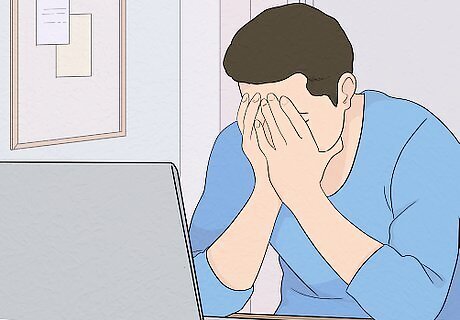
Chronic stress Work-related stress occurs when your job’s demands exceed your ability to accomplish them and leave you with no time to recharge or cope. Stress can come from the demands of the job, long hours, conflict with coworkers, or frequent change or instability. Symptoms of stress include fatigue, feeling overwhelmed, having trouble being productive or making decisions, disinterest, and/or physical symptoms like headaches or muscle tension.
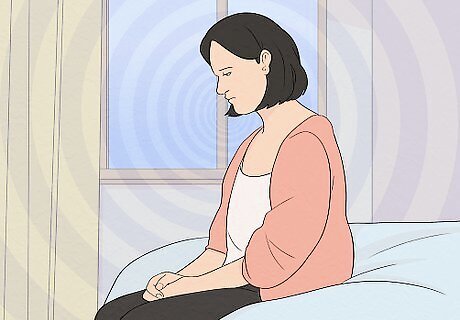
Anxiety or depression Prolonged stress at work can lead to other mental health conditions including anxiety and/or depression. This doesn’t mean your job has given you a disorder, though—you may feel symptoms of anxiety or depression due to stress without having a diagnosed anxiety disorder or clinical depression. Anxiety symptoms include panic or anxiety attacks (and a fear of having an attack), avoidant behavior, or trembling, sweating, or faintness around triggers. Depression symptoms include sad or irritable feelings, hopeless or self-sabotaging thoughts, withdrawal from activities and relationships, or being frequently tired or sick.

Increased irritability or sensitivity Your ability to cope with setbacks or inconveniences diminishes when you hate your job. You may feel less empathetic toward others at work, find work less enjoyable, use sarcastic or cynical language, or feel heightened anger when triggered. Your triggers for outbursts may become increasingly smaller or more minor as time goes on if no changes are made to ease your work-related stress.

Insomnia or changed sleep patterns You might dwell on work once you’re home, which can keep you up at night or even influence your dreams. This can leave you feeling tired and fatigue, making work even harder to cope with. If you use alcohol, drugs, or food to self-soothe, your sleep can get even worse. The top 3 work stressors that interfere with sleep are having little control over decisions, extreme work demands, and feeling like you’ve compromised professionally.

Alcohol, drugs, or food as coping mechanisms Some people turn to substance abuse or binge eating to cope with the demands of a job they don’t like. While these activities may feel good in the moment, they can lead to worse sleep, anxiety or depression, and physical health in the long run. The CDC recommends choosing to drink in moderation if you drink alcohol. This means no more than 2 drinks per day for men or 1 drink per day for women. If you’re struggling with substance abuse or disordered eating, connect with a counselor or therapist who can help you change your habits and find better ways to manage stress.
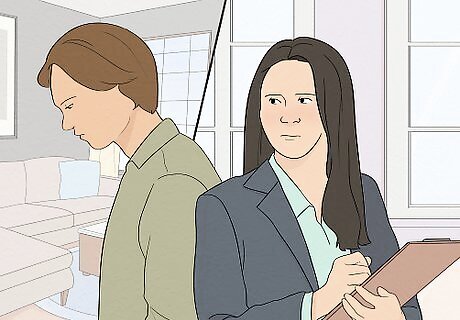
Poor work-life balance The demands of your work (or just the emotional drain of hating your job) may interfere with your personal, leisure, or family time. This can lead to more stress or feelings of isolation and contribute to fatigue or a never-ending feeling of needing to “catch up.” A small amount of stress can hone your focus and improve your productivity. However, burnout or hatred for your work can be debilitating overtime.
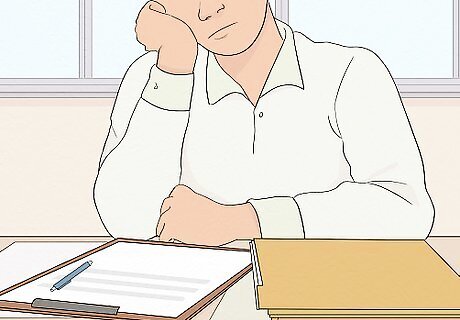
Lower creativity, ambition, and productivity Generally, stress or hatred for your job makes you worse at doing it (which can make you feel even more stressed). Your creativity and problem-solving skills might diminish, you may not feel motivated to take initiative or go “above and beyond,” and your overall productivity goes down.
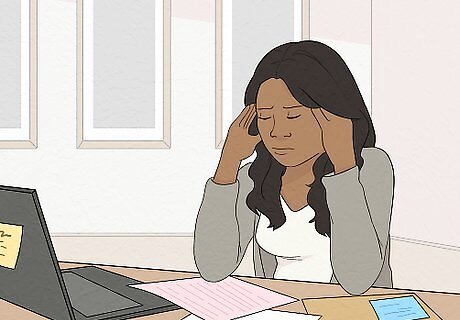
Mental fatigue You may feel completely unmotivated, unable to concentrate or make decisions, brain fog, or an inability to get your work done. At the extreme, you may end up taking more sick days or finding reasons to work less simply because you’re unable to process work-related information or demands.
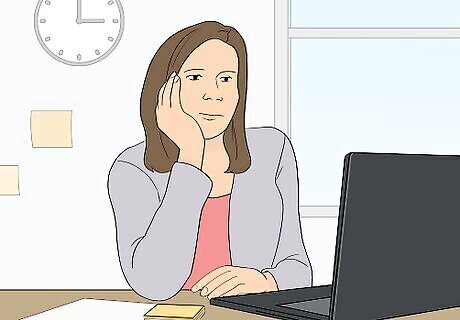
Emotional exhaustion or burnout Burnout is an occupational phenomenon caused by unmanaged chronic stress at work. It’s usually caused by a combination of personal factors (for example, not feeling passionate about your work) and environmental workplace factors (like low wages or inadequate sick time). Burnout is the ultimate emotional exhaustion; it makes you feel like you just “can’t do it anymore” or don’t care about your job how you used to. Burnout can lead to workplace conflict, poor job performance, or even suddenly quitting or resigning from your position.
Physical Impact of Work-Related Stress
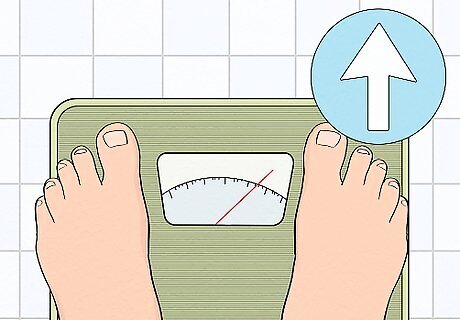
Chronic stress can cause physical symptoms like high blood pressure. Unmanaged stress from work is more than just a mental obstacle—it can have repercussions for your physical health, too. Long-term stress can lead to issues like: Weight loss or weight gain A weakened immune system or getting sick more often Stomach and/or gastrointestinal problems Headaches, migraines, or muscle aches Elevated blood pressure Decreased libido Increased risk of heart disease Changes in menstrual cycle
Coping With a Job You Hate
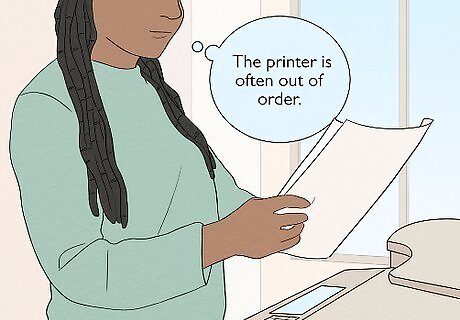
Identify the specific causes of your dissatisfaction to find solutions. What exactly makes you hate your job, and are there any positive changes you can make? For example, you might set up an in-person meeting with a difficult coworker or ask your supervisor for clarification over your responsibilities if you’re confused. Discuss specific concerns to find the best solutions and set goals for improvement or compromise. For example, mention how the printer is often out of order instead of saying “everything is broken all the time.” Specifics make it easier to find actionable solutions.
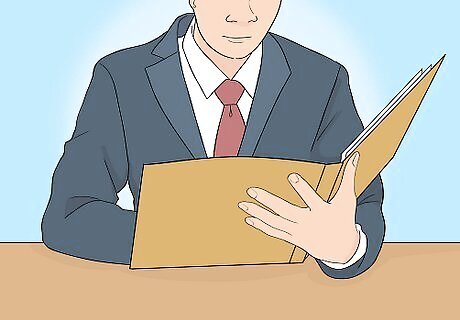
Look for more meaningful projects and opportunities at your job. Certified career coach Meredith Walters says, “Keep an eye out for projects or areas where [you] can do more of what's enjoyable to [you], what [you’re] naturally good at, and proactively offer to take on those projects or to initiate work in those areas. Talk to [your] boss or volunteer for teams that are working in those areas. That's a great way of finding more purpose in your work.” She adds, “When [you’re] doing something that speaks to [your] passion, strengths, and purpose, [you’re] much more engaged and tend to do a much better job. It’s much more satisfying.”
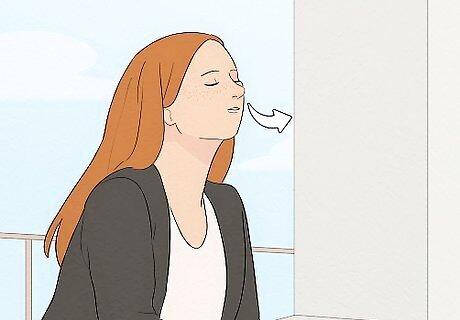
Focus on mindfulness when tensions boil over at work. Being mindful means being consciously aware of the present moment. When you feel fed up, try some of these exercises to face your situation with patience, openness, and without judgment: Try doing breathing exercises to focus on your breath. Breath in for 4 counts, hold it for 4 counts, and exhale for 4 counts, then repeat to calm down. If possible, go for a short walk outside (or even around your workplace) and tune in to how your body feels. If you have a moment, write down a few sentences about how you’re feeling to manage your emotions.
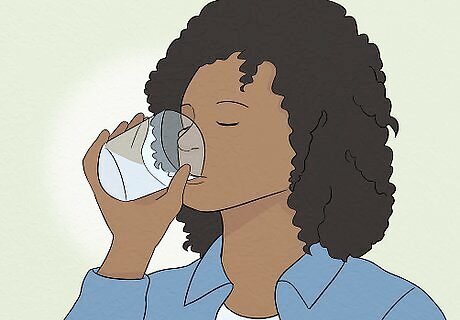
Take care of your physical health. Burnout or stress can take a toll on your body, so do your best to exercise regularly, stay hydrated, and eat a nutritious diet. Try to get a good night’s sleep most nights, since this can help you cope with stress and strengthen your immune system. Pack a water bottle and snacks to bring to work to nourish you while you’re stressed (and to avoid getting “hangry” with colleagues).
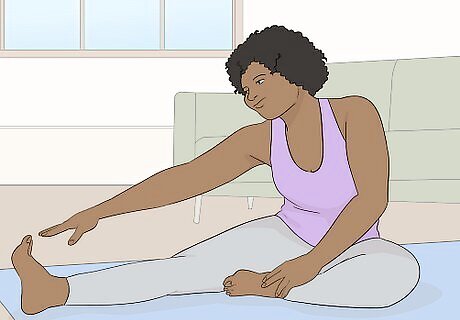
Do relaxing activities after work to reduce your stress. Having something to look forward to after work improves your mood and makes work feel a bit less miserable. Pursue a soothing hobby like gardening, baking, or painting, or try stress-reducing activities like yoga, meditating, or journaling. Planning for relaxing activities ahead of time helps you manage your schedule and maintain a healthy work-life balance.
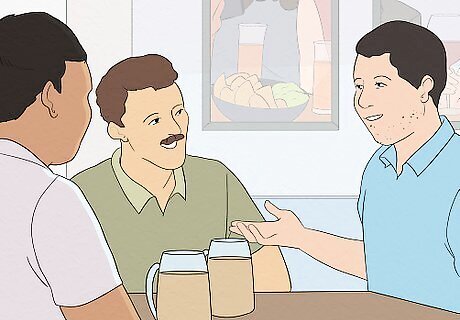
Utilize your support systems in and outside of work. Outside of work, this could mean venting to friends and loved ones about your stress and receiving affirming words about your strengths and worth. At work, this could mean discussing problems with trusted colleagues, delegating tasks to ease your workload, or using an Employee Assistance Program (EAP). EAPs are typically free, voluntary, and confidential programs to help you cope with both workplace and life stressors.

Work on developing positive relationships with your colleagues. According to career coach Meredith Walters, “Developing relationships with the people around [you]...goes a long way for advancement, job satisfaction, and helping if you ever want to move on to a new job.”To strengthen your relationships, “Reach out to the people around [you] to get to know them personally and take an interest in them. Help them as much as possible in developing and maintaining strong relationships with the people around them,” she adds.
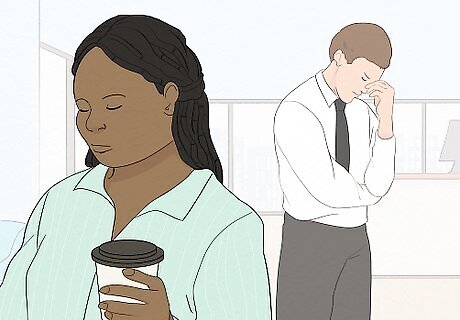
Limit your time with negative or toxic colleagues. Meredith Walters says, “If you notice that they're really affecting your mood…interact with them as briefly as possible or limit your interactions with them. Seek out people who aren’t toxic to communicate with.”If you can’t avoid them, “notice when you're in a conversation that's turning toxic and redirect it. Gently say, ‘I find that it doesn't help me to talk in this way because I get hopeless or frustrated’ or whatever you want to say. Ask to chat about something else instead of turning it into a criticism.”

Try to resolve issues with problematic coworkers. When a colleague seems to be against you, it’s often a reflection of them. Career coach Meredith Walters advises to “try to see if you can talk to them and get an idea of what it is that they're responding to and why. [You’ll] often see that it's not actually about you, and it becomes less personal and less hurtful.”Having these conversations “removes the judgment of ‘good versus bad’ from the equation…and then it can be more [about] problem solving. How can we navigate and work together? Involving the other person, having a conversation, and being open and as not defensive as possible is great.”
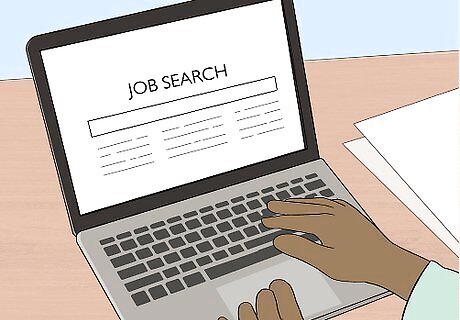
Start looking for your dream job if you’ve exhausted all other options. The decision to quit is highly personal. Career coach Meredith Walters says, “For some people, I would recommend that they not quit until they have something else lined up. For others, I would recommend that they do quit…[depending] on their personality, their risk tolerance, or their financial situation.” If you start searching for a new job, she recommends looking at your “power, passion, and purpose” to find a good fit:Your power is “your strengths and skills. Not just the skills you've learned, but also who you are and how you approach the world. What gifts do you have to offer? What are the traits and qualities that you offer just by being who you are?”Your passion is what “you love to do. What brings you joy or what makes you come alive and gives you energy?”Lastly, your purpose is “what’s meaningful or important to you. What impact do you want to have on the world?”According to Meredith Walters, “knowing what's essential to you in those three areas and where they overlap gives you really great clues about where to look for fulfilling work.”
Symptoms of Burnout
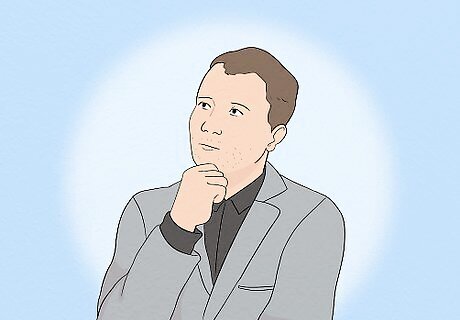
Ask yourself the following questions—if you answer “yes” to at least one of them, you may be burned out. Meet with your employer, make changes in your workplace, or speak to a counselor or therapist to overcome your burnout. Do you feel cynical or overly critical at work? Does commuting to work or getting started for the day feel difficult? Are you more irritable or impatient with colleagues and clients? Do you lack the energy to be productive? Is it difficult to concentrate on work? Do you feel unsatisfied with your professional achievements? Are you disillusioned with your job or workplace? Are you coping with work stress with alcohol, drugs, or food? Have your sleep habits changed for the worse? Do you have unexplained physical symptoms like stomach trouble or headaches?
Top Reasons for Job Dissatisfaction or Burnout
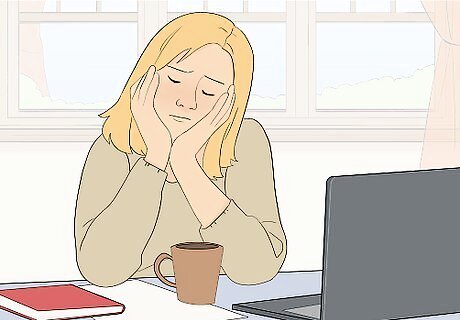
Burnout is often due to a mix of personal and environmental factors. While each person’s reasons for hating their job are different, the most common causes include problems like: A lack of control over decisions affecting your job like scheduling, workload, or resources. Unclear expectations about your authority or what’s required from you. Problematic work relationships like micromanaging supervisors or mean-spirited colleagues. Extremely monotonous or chaotic activity requiring constant attention or energy. Feeling isolated or unsupported (at work or in your personal life). Poor work-life balance that interferes with your personal time and needs.
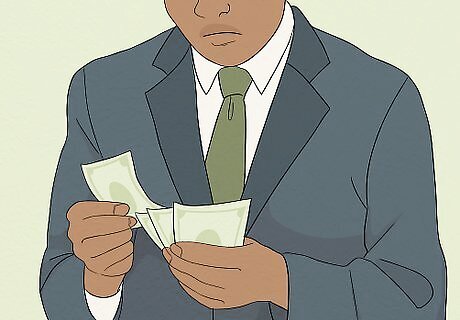
Low pay and a lack of growth opportunities cause many to quit. When burnout factors like unclear expectations or monotonous tasks combine with other issues like low wages, you might hate your job enough to quit. In 2021, the top reasons U.S. employees left their jobs were: Low wages. No room for growth or opportunities for advancement. Feeling disrespected in the workplace. Child care issues. Inflexibility with scheduling (including working too many or too few hours). Poor benefits. A desire to relocate to a new geographic area.




















Comments
0 comment